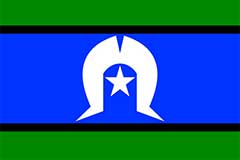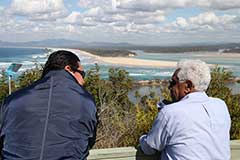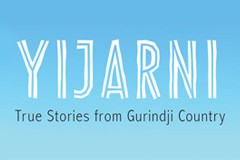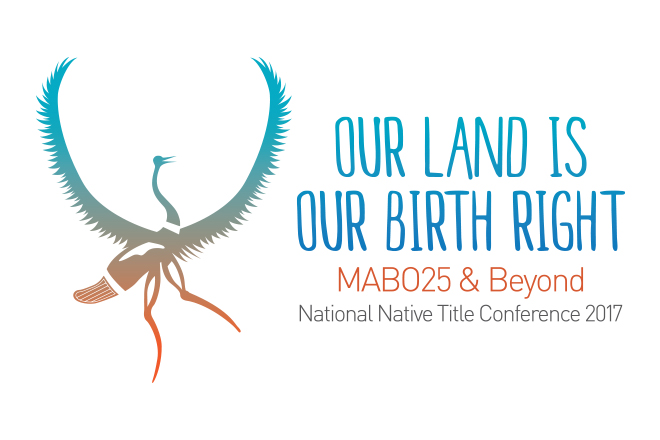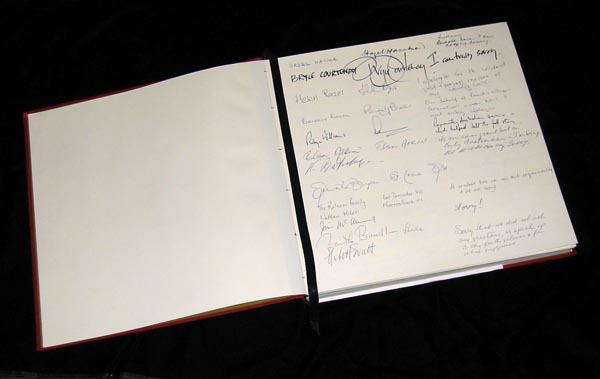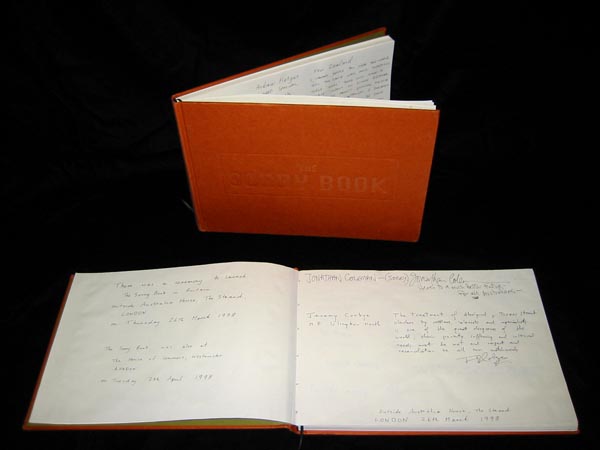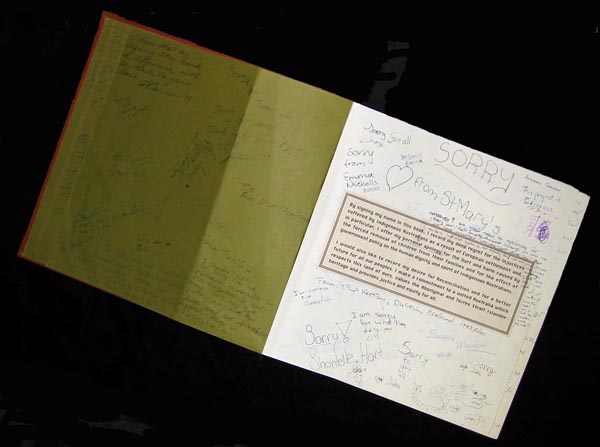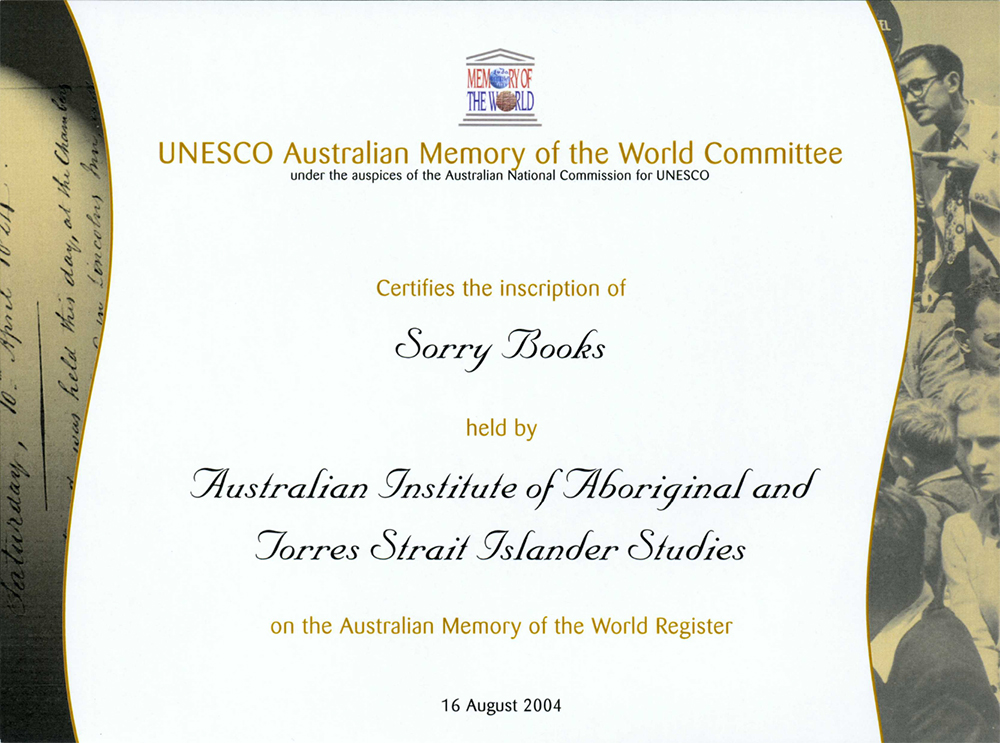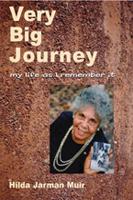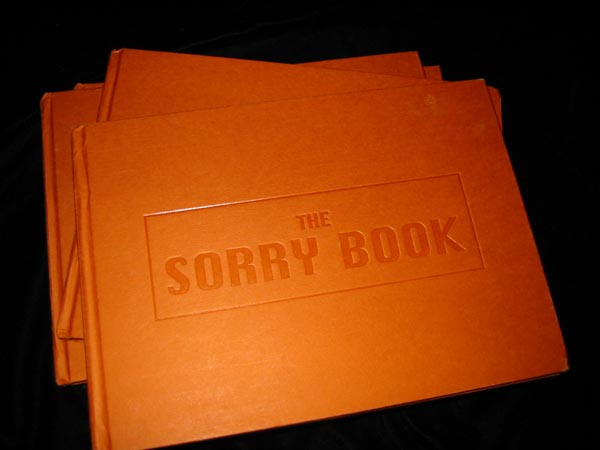
The Sorry Books are a powerful record of the personal responses of Australians to the unfolding history of the Stolen Generations. They are a “people’s apology” for past wrongs to Indigenous Australians, a public expression of regret, compassion, and hope.
The Sorry Books were a response to the National Inquiry into the Separation of Aboriginal and Torres Strait Islander Children from their Families, which released its findings in 1997. A key recommendation of the Bringing them home report was the need for official acknowledgement of, and apology for, the forcible removal of Aboriginal and Torres Strait Islander children. All the state and territory governments issued apologies for the laws, policies and practices which had governed forcible removal. However, at that time, the Australian Government, under Prime Minister John Howard, refused to make an formal National Apology in the Australian Parliament and instead offered a motion of reconciliation.
The Australian Government’s refusal created significant grassroots support across the country for a National Apology including the community group, Australians for Native Title initiative of the Sorry Book campaign. ANT created an opportunity for everyday Australians to do something in response to the Federal Government's refusal to make a formal apology. The large numbers of people personally apologising did not replace an official, national apology, but demonstrated broad-based support for such an apology.
The Sorry Books campaign was launched in Sydney on Australia Day, 26 January 1998. Over the following four months, around 1000 Sorry Books were circulated around Australia by ANT, Australians for Native Title and Reconciliation, and networks of volunteers. Many organisations and individuals also made up their own Books.
Each Sorry Book began with the following statement:
“By signing my name in this book, I record my deep regret for the injustices suffered by Indigenous Australians as a result of European settlement and, in particular, I offer my personal apology for the hurt and harm caused by the forced removal of children from their families and for the effect of government policy on the human dignity and spirit of Indigenous Australians.
“I would also like to record my desire for Reconciliation and for a better future for all our peoples. I make a commitment to a united Australia which respects this land of ours, values Aboriginal and Torres Strait Islander heritage, and provides justice and equity for all.”
The rest of the book’s pages were blank for people to add their signatures and comments. Archival paper was used so that the Books would be an enduring statement.
The Books were displayed by local councils and in libraries, museums, churches, shops, art galleries and schools. Books were also displayed in London, where they were signed by Australian expatriates, tourists and, at the House of Commons, British Members of Parliament. Over the course of the campaign, it is estimated that half a million people signed Sorry Books.
The content of each Sorry Book is different. Some pages are covered with rows of signatures without any messages; some signatories simply wrote ‘I am sorry’; while others wrote extensive apologies, often on behalf of families and previous generations. School groups created their own Books, often with decorative covers, and children drew pictures alongside their comments.
Many people expressed disappointment with the Government and the Prime Minister for their lack of apology. Some pointed out that this failure had prompted them to apologise as individuals.
Many people signing the Books drew on their own personal experiences. Women expressed their feelings about the loss of a child and how they would feel if something similar happened to them. A number of adopted children added comments empathising with the process of displacement and loss of identity. Migrants and tourists signed the Books and referred to conflicts and struggles in their country of origin.
The first National Sorry Day was held on 26th May 1998, the anniversary of the tabling of the Bringing Them Home report. In a ceremony at Government House, Sydney, the Sorry Books were handed to a delegation of Indigenous Australians which included members of the Stolen Generations.
Soon after, many of the Sorry Books were acquired by AIATSIS for preservation in its national collection. On the 10th of August 2004 the collection of 461 Sorry Books then held by AIATSIS was inscribed on the UNESCO Australian Memory of the World Register, in recognition of their historical and social significance.
Following further donations, AIATSIS now holds over 500 Sorry Books, including three of the four Sorry Books signed at the launch event.
View detailed information about the Sorry Books held at AIATSIS in the following finding aids:
